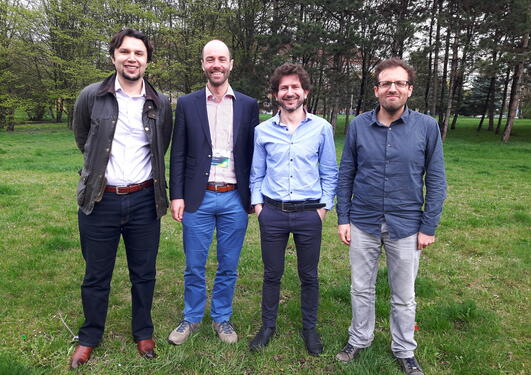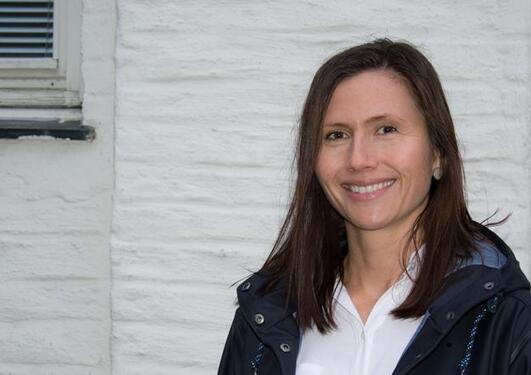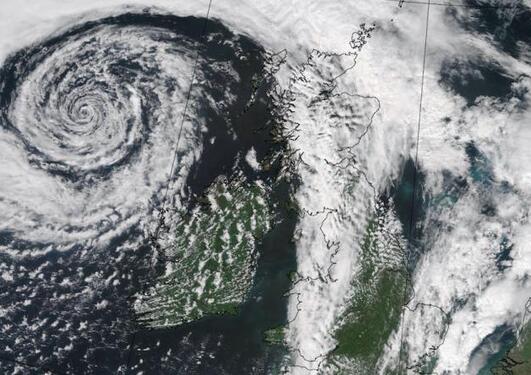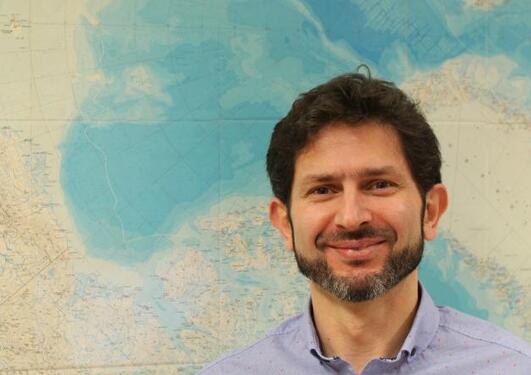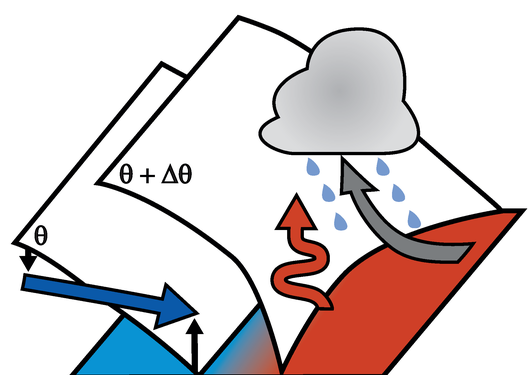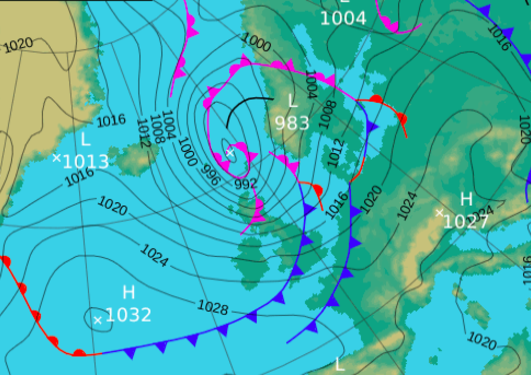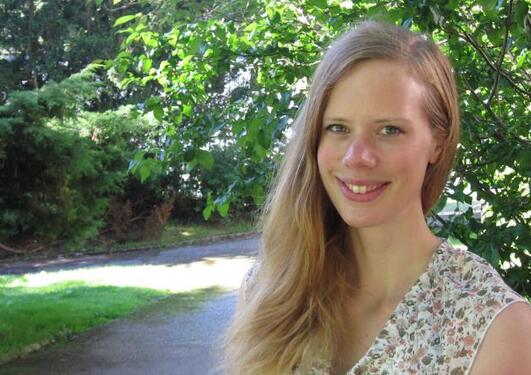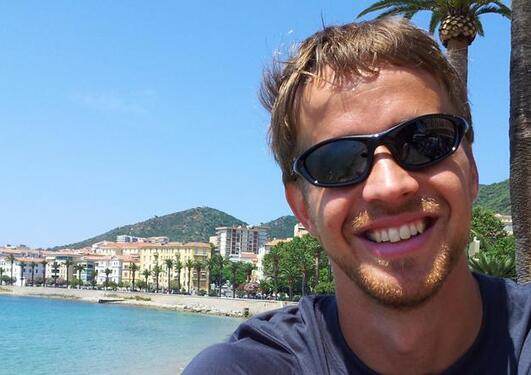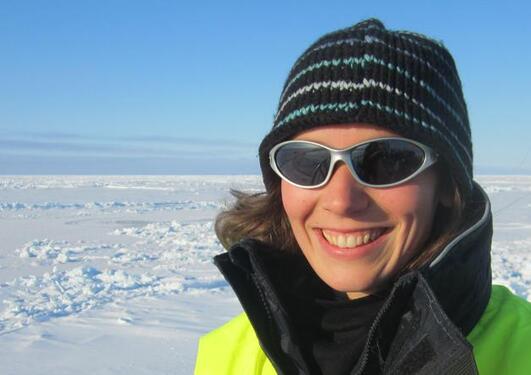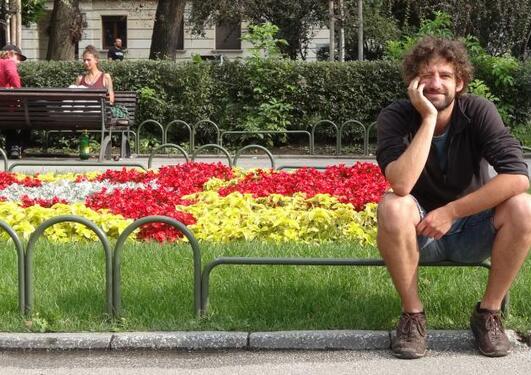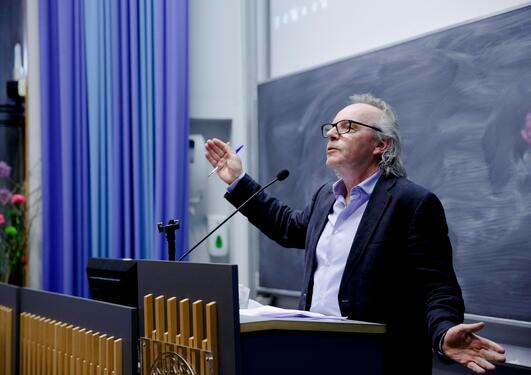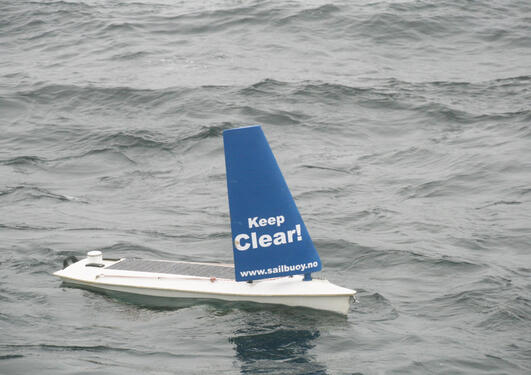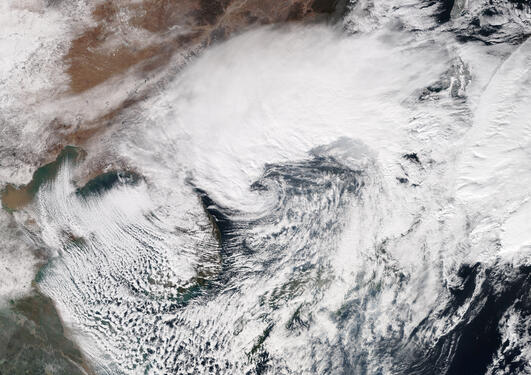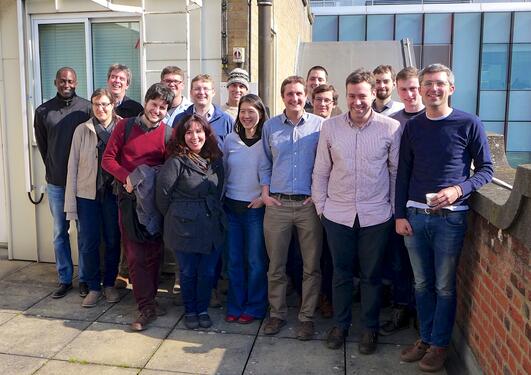News archive for Geophysical Institute
Some scientists from GFI / BCCR contributed significantly to a MOSAiC Workshop at ASSW in Prague on 4 and 5 April.
The University of Bergen has success in the QS university rankings, based on subject areas. Within the category of marine research, the University of Bergen was named the 37th best in the world.
When Svetlana Sorokina’s mother calls from Siberia and complains about the cold, Svetlana knows one thing: It has probably been unusually warm in the Arctic
A new research finds an increase of strong and extremely strong fronts in summertime and autumn over Europe. If this is a trend or caused by climate change remains to be seen, according to lead author Sebastian Schemm.
The German Society for Marine Research (Deutsche Gesellschaft für Meeresforschung, DGM) recently announced the recipient of the Georg Wüst Prize 2017. Congratulations Ilker Fer!
In the programme FRINATEK, the research counsil distributed 251 mill. NOK on 32 new research projects. Four of these are for researchers at Geophysical Institute. We also got one of five projects in the programme Polarprog.
Analysis of cyclone tracks and precyclogenesis flow conditions show us that El Niño can shift the preferred cyclogenesis position over the Gulf Stream which influences the cyclone’s track across the North Atlantic.
The results are published in the Journal of the Atmospheric Sciences.
The University of Bergen will this fall and the next spring compete against 4 other universities in Europe in making the best 2 day weather forecasts. Participants will predict maximum and minimum temperature as well as precipitation.
The Gulf Stream transports warm water towards Northern Europe. This flow is driven by northward flows replacing water that sink in the Norwegian Sea, but also by the wind blowing over the sea. In some regions, the wind can be the strongest driver. Carina Bringedal studies the role of the winds at the entrance of the Norwegian Sea
What if we could predict how much sea ice there will be in the Nordic Seas in two years? Or twenty? In the gap between ordinary weather forecasts and climate projections, there is a dialog between the ocean and the atmosphere. Without understanding how they interact, we cannot predict variations in climate, says Marius Årthun.
North Pole explorers send summer photos of melt water pools and cracks that become harder and harder to cross. If they had winter expeditions, they would see that ice covers as much of the Arctic Ocean as in the past. Only the Barents Sea and the region just north of Svalbard have lost winter ice.
Sometimes things are so complicated that you're forced to think simple. Erwin Lambert is an expert at that. With a few, plain boxes he tries to calculate how a rainy future will influence Atlantic currents.
Are you interested in what drives the climate systems and changes? Or would you like to learn more about how to prevent the development of diseases and injuries in workplaces in developing countries? Follow one of our massive open online courses this autumn!
Professor Terje Tvedt criticizes Social Sciences for being “water blind”.
Bergen is world-leading within marine research and climate research.
The NORPAN project gives Norwegian researchers and students the opportunity to visit Japanese and Norwegian institutions.
The Norwegian jetSTREAM (Atmospheric jet variability: linking STRucture, Evolution And Mechanisms) crew met for a three days’ workshop in Oxford March 16-18.
Pages
- April 2025 (1)
- March 2025 (1)
- February 2025 (4)
- October 2024 (1)
- September 2024 (2)
- August 2024 (1)
- April 2024 (3)
- November 2023 (1)
- October 2023 (1)
- June 2023 (2)
- March 2023 (1)
- January 2023 (3)
- June 2022 (1)
- April 2022 (1)
- March 2022 (1)
- January 2022 (1)
- November 2021 (1)
- June 2021 (1)
- March 2021 (1)
- February 2021 (1)
- September 2020 (2)
- August 2020 (2)
- January 2020 (2)
- December 2019 (1)
- November 2019 (1)
- October 2019 (4)
- August 2019 (2)
- July 2019 (2)
- June 2019 (1)
- May 2019 (4)
- April 2019 (2)
- March 2019 (3)
- February 2019 (1)
- January 2019 (5)
- December 2018 (2)
- November 2018 (1)
- October 2018 (2)
- September 2018 (3)
- August 2018 (1)
- July 2018 (1)
- April 2018 (2)
- March 2018 (2)
- February 2018 (2)
- January 2018 (1)
- October 2017 (3)
- September 2017 (1)
- June 2017 (6)
- May 2017 (2)
- April 2017 (1)
- March 2017 (1)
- February 2017 (2)
- December 2016 (2)
- November 2016 (2)
- October 2016 (1)
- September 2016 (4)
- August 2016 (1)
- June 2016 (1)
- May 2016 (2)
- April 2016 (1)
- February 2016 (1)
- December 2015 (1)
- November 2015 (1)
- May 2015 (1)
- January 2015 (1)
- December 2014 (1)
- October 2014 (1)
- September 2014 (1)
- August 2014 (1)
- June 2014 (1)
- March 2014 (2)
- February 2014 (1)
- December 2013 (1)
- November 2013 (1)
- October 2013 (1)
- August 2013 (1)
- November 2012 (1)
- October 2012 (1)
- September 2012 (1)
- August 2012 (1)
- February 2011 (4)
- January 2011 (2)
- October 2009 (2)
- January 2009 (1)
